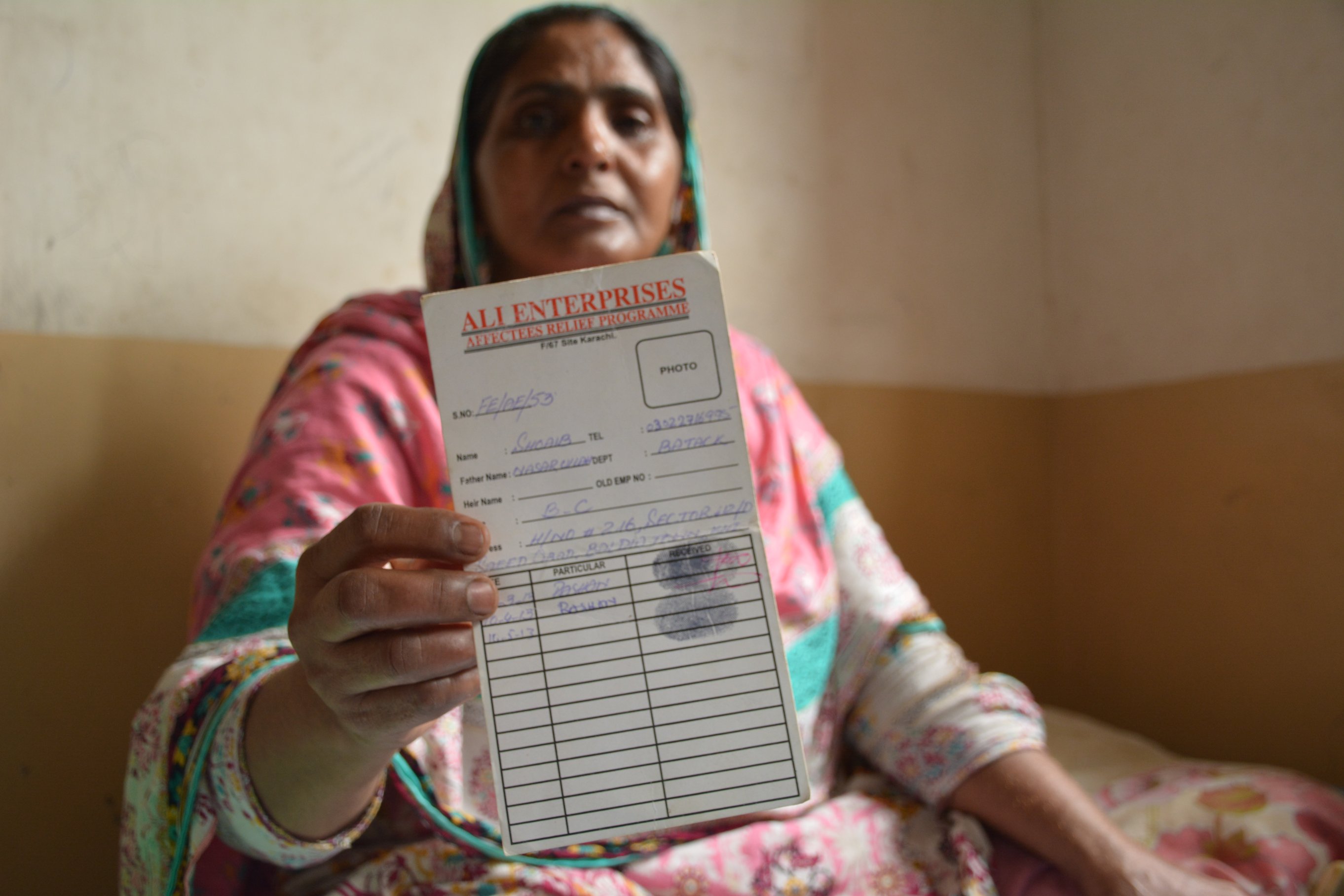
Five years since Ali Enterprises fire disaster, factories in Pakistan continue to be unsafe
Today Clean Clothes Campaign commemorates the five year anniversary of the deadly fire that ripped through the Ali Enterprises factory in Pakistan, killing over 250 garment workers. As we remember this tragedy, our thoughts are with the families that lost loved ones and of those that lived through these horrific events. Taking stock five years on, Clean Clothes Campaign fears that, in absence of credible and transparent safety inspections, garment factories in Pakistan remain unsafe workplaces. This means that thousands of workers continue to face daily risks of being injured or killed at work.
The fire at the Ali Eterprises factory and its high death toll clearly revealed the urgent need for signficant change within the Pakistani and global garment industry. The fire painfully illustrated how corporate auditing systems were inadequate in identifying, documenting and remediating vital safety defects, thereby saving workers' lives. Only weeks before the lethal fire, the factory was granted a SAI8000 certification as a result of an audit carried out by RINA, a private auditing company, which included a check on safety standards. Despite this clear failure of the mainstream auditing and certification practice, the industry continues to rely on the same ineffective systems and auditing firms.
In Bangladesh, the collapse of the Rana Plaza factory in 2013 was followed by the creation of a legally binding, credible and transparent system of safety inspections based on international building safety standards. The worst factory fire in Pakistani industrial history should have similarly inspired the adoption of transparent and credible inspecition mechanisms in Pakistan. Yet, over the past five years there has been no discernable progress towards adopting such mechanisms and addressing the problems that led to the Ali Enterprises factory fire.
The German low-cost retailer KiK - the only known buyer at the Ali Enterprises factory - recently created a safety programme, but their programme is opaque and provides no accountability mechanisms. Given KiK's relationship with the Ali Enterprises factory and the fact that a signifcant portion of their clothes continue to be made in Pakistan, KiK bears a major responsibility towards ensuring Pakistani garment factory safety.
Nasir Mansoor of the Pakistani National Trade Union Federation (NTUF) states: "KiK should know from experience that the kind of unaccountable auditing that it relied on before the Ali Enterprises fire does not create safe factories. The company should learn from its past and help create mechanisms that are reliable and transparent."
"The Bangladesh Accord for Fire and Building Safety proves that it is possible to swiftly move from the classic 'audit and ignore' to a successful system which aptly inspects and remediates. Until Pakistan implements its own system of credible, transparent and accountable safety inspections that include financial commitments from brands for inspection and remediation, workers lives remain at risk," states Ben Vanpeperstraete of Clean Clothes Campaign.
Karamat Ali of Pakistani Institute of Labour Education & Research (PILER) adds: "The Pakistani garment sector is in dire need of accountable inspections that conform with international standards and are embedded in a system that is suitable to the national situation, to prevent its factories from being death traps to the workers employed in it."
The work towards full justice for the families affected by the Ali Enterprises factory disaster remains in progress. Last year, on the eve of the fourth anniversary of the fire, global stakeholders came to an agreement to organize compensation for loss of income and medical costs for the affected families. As part of this agreement KiK has paid over five million dollars, to be distributed through an ILO-organized process. The payments to the affected families have not yet commenced, but Clean Clothes Campaign sincerely hopes that affected families can start receiving compensation as soon as possible. Saeeda Khatoon, who lost her son in the fire, speaks on behalf of the Ali Enterprise Factory Fire Affectees Association, stating: "We lost our family members in this deadly fire five years ago, now it is time for us to receive the agreed upon compensation. Brands should respect the rights of workers, including the right to a safe workplace."